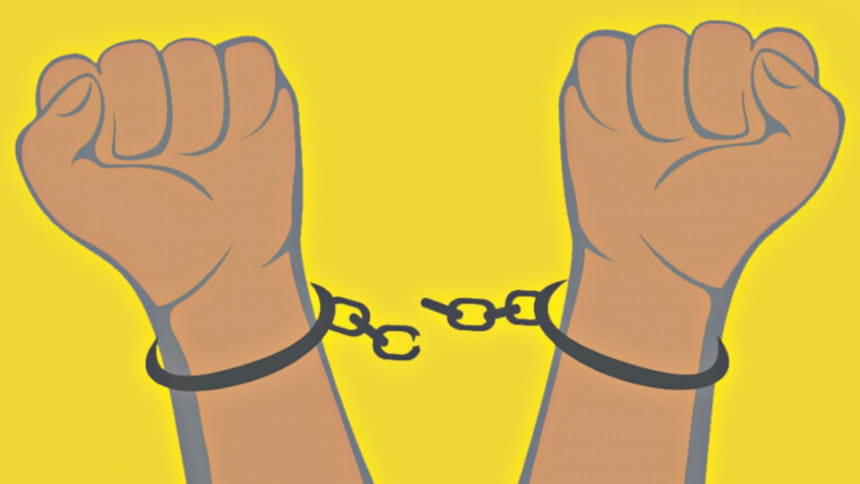Ensuring labour rights can tackle human trafficking

Less than twenty years ago, human trafficking was defined by an international treaty, known as the Palermo Protocol (Protocol to Prevent, Suppress and Punish Trafficking in Persons, Especially Women and Children, supplementing the United Nations Convention against Transnational Organized Crime), whereby the international community committed to prevent, suppress and punish trafficking in persons. Since then, global attention has been focused on fighting—and eradicating—the crime of human trafficking.
While commitment to fighting exploitation and abuse of individuals for profit has been high, it has not resulted in cohesive action to prevent trafficking.
The persistence of human trafficking fundamentally challenges the basic values of humanity, including our inherent dignity and the equal and inalienable rights of all members of the human family.
Hundreds of millions of dollars are spent every year on counter trafficking efforts, mostly on investigation and criminal prosecution, raids to "rescue" irregular migrants and sex workers who are thought to be potential victims and trainings to raise awareness among those who might possibly experience or encounter human trafficking.
From the latest global data on the prevalence of human trafficking to reports from grass-roots organisations, all signs show that we have failed to reduce the number or severity of abuses.
There has been an increased focus on the role of businesses in perpetuating human trafficking. Against the backdrop of a worldwide pursuit of ever-cheaper labour and reduced regulation, responsible business was anticipated to be a force for change.
Drawing upon the sensationalism of "modern slavery", calls for expanded auditing of supply chains and for corporate disclosures on sourcing have proliferated. However, these voluntary initiatives have not brought substantive improvement, avoiding the changes to business models that could make a real difference—such as paying workers a living wage or expanding social protection.
Addressing trafficking more effectively requires a clearer understanding of the underlying issues. Human trafficking is not the result of a few criminals who have managed to avoid prosecution. It is a systemic problem, with roots in the violation of labour rights: unsafe workplaces, excessive working hours, lack of overtime pay, wage theft, lack of freedom of association ...
Primarily, human trafficking is grounded in unfair labour, gender and class relations. Yet, anti-trafficking measures have failed to address the causes of vulnerability, particularly for women and girls in the informal sector.
Justice demands criminal prosecution of those who profit from trafficking, but this response has proved insufficient to reduce the problem. Change must occur at a more fundamental level.
A greater focus on protection of labour rights and ensuring decent working conditions is needed to reduce vulnerability to human trafficking. This means bringing those employed precariously in domestic work, agriculture, fishing, entertainment, and other informal work under the full protection of labour laws.
It means
- Tackling discriminatory treatment, particularly for women and migrant workers;
- Extending social protection schemes so that all workers can benefit;
- Broadening the mandate and resources of labour inspectorates to enforce labour laws;
- Facilitating access to complaint mechanisms through outreach and legal assistance;
- Guaranteeing freedom of association for workers to organise and bargain collectively.
In 2014, all ILO member States adopted a new international labour standard against forced labour. It emphasises the link between forced labour and trafficking in persons and establishes the obligations on three main levels: protection, prevention and compensation.
The tools are here to combat human trafficking effectively and uphold our commitment—the question is whether we have the courage to make use of them.
Tomoko Nishimoto, the regional director for the International Labour Organization (ILO) in Asia and the Pacific. The ILO is the UN agency that brings together governments, employers and workers from 187 member States to promote jobs and protect people. The ILO currently has nine programmes against forced labour and human trafficking worldwide, four of them in Asia and the Pacific.










Comments